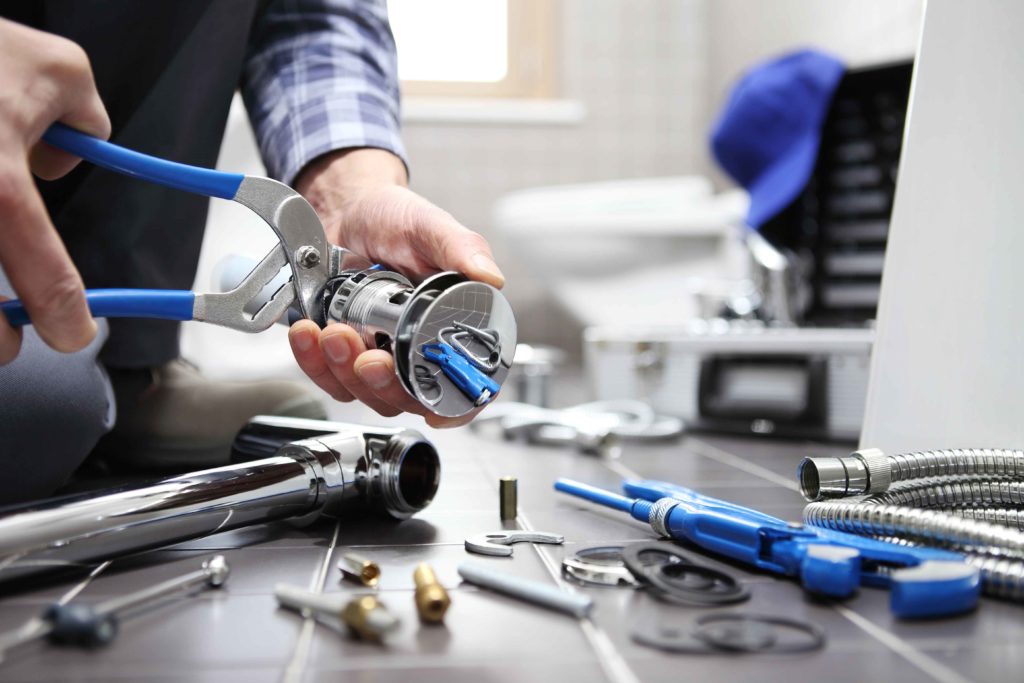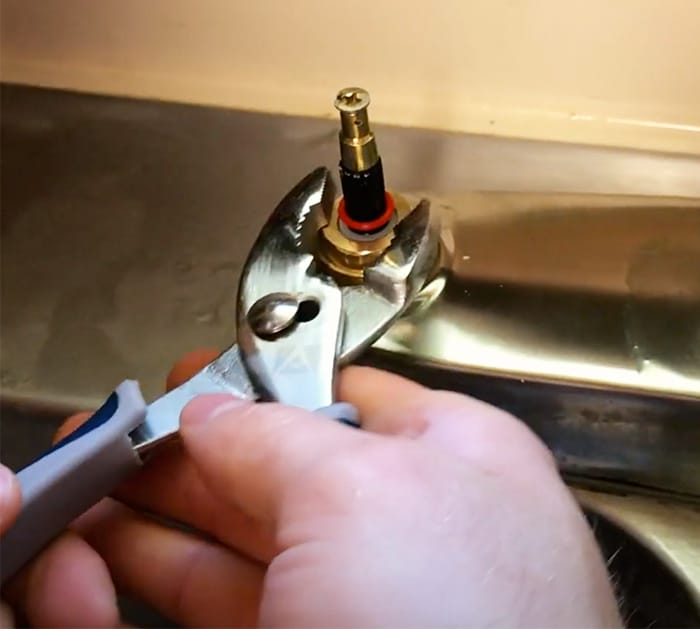The Benefits of Dealing with a Dripping Faucet
The Benefits of Dealing with a Dripping Faucet
Blog Article
We have found this article involving 4 Common Reasons for a Leaky Faucet directly below on the web and concluded it made good sense to talk about it with you on this site.

Leaking taps might appear like a minor hassle, yet their impact surpasses simply the inconvenience of the noise. From drainage to sustaining unnecessary financial prices and health risks, disregarding a leaking tap can bring about numerous repercussions. In this post, we'll explore why it's critical to resolve this usual house concern immediately and properly.
Wastefulness of Water
Ecological Effect
Leaking faucets contribute substantially to water waste. According to the Environmental Protection Agency (EPA), a single tap leaking at one drip per second can waste greater than 3,000 gallons of water each year. This not just strains water resources yet likewise affects ecological communities and wild animals based on them.
Financial Costs
Raised Water Expenses
Past the environmental impact, trickling faucets can blow up water expenses considerably. The collected wastefulness gradually converts right into higher utility expenditures, which could have been prevented with prompt repair work.
Potential Residential Property Damage
In addition, prolonged leaking can lead to harm to fixtures and surfaces bordering the tap. Water buildup can cause staining, rust, and even architectural problems if left ignored, leading to extra repair service prices.
Wellness Problems
Mold And Mildew and Mold Growth
The continuous existence of wetness from a leaking faucet creates a perfect setting for mold and mildew and mildew growth. These fungi not just endanger interior air top quality however also pose wellness dangers, especially for individuals with respiratory system problems or allergic reactions.
Waterborne Diseases
Stationary water in leaking faucets can come to be a breeding ground for germs and other microorganisms, enhancing the threat of waterborne illness. Impurities such as Legionella germs grow in stationary water, potentially leading to serious ailments when ingested or breathed in.
DIY vs. Specialist Repair
Benefits and drawbacks of DIY Fixing
While some may attempt to deal with a dripping faucet themselves, DIY repair services feature their own set of difficulties. Without appropriate expertise and devices, do it yourself efforts can worsen the concern or bring about insufficient repairs, prolonging the problem.
Benefits of Hiring a Professional Plumber
Hiring a professional plumber guarantees that the underlying reason for the dripping faucet is dealt with efficiently. Plumbings possess the proficiency and equipment to diagnose and fix faucet problems successfully, saving time and decreasing the risk of more damage.
Step-by-Step Guide to Dealing With a Dripping Faucet
Tools Needed
Before trying to take care of a leaking tap, gather the necessary devices, consisting of an adjustable wrench, screwdrivers, replacement components (such as washers or cartridges), and plumber's tape.
Usual Faucet Issues and Their Solutions
Determine the type of faucet and the details concern causing the drip. Typical troubles include worn-out washers, rusty shutoff seats, or faulty O-rings. Refer to supplier instructions or online tutorials for step-by-step assistance on repair services.
Safety nets
Regular Maintenance Tips
To avoid leaking taps, perform routine maintenance such as cleaning up aerators, examining for leaks, and replacing worn-out components without delay. In addition, take into consideration installing water-saving tools or updating to extra reliable components.
Importance of Prompt Repairs
Addressing trickling taps as soon as they're noticed prevents additional water wastage and possible damages, ultimately conserving both water and cash over time.
Impact on Home Value
Assumption of Well-Maintained Home
Maintaining a property in good condition, consisting of addressing upkeep problems like leaking taps, enhances its perceived value and worth amongst potential buyers or renters.
Influence on Resale Value
Features with well-maintained plumbing components, consisting of taps, command higher resale values in the realty market. Addressing leaking taps can add to a favorable impact during home examinations and arrangements.
Ecological Duty
Specific Contribution to Preservation
Taking duty for dealing with trickling taps straightens with more comprehensive initiatives towards water conservation and environmental sustainability. Every individual's activities jointly make a substantial effect on protecting precious resources.
Sustainable Living Practices
By focusing on punctual repair services and adopting water-saving habits, individuals add to sustainable living practices that profit both present and future generations.
Conclusion
Resolving a leaking tap exceeds mere comfort; it's a vital action toward preserving water, decreasing economic prices, and guarding wellness and property. Whether through do it yourself repair work or specialist assistance, acting to fix leaking taps is a tiny yet impactful way to promote accountable stewardship of sources and add to a healthier, much more lasting future.
How to Fix a Leaky Faucet: Step-by-Step Repair Guide
A leaky faucet may seem like a simple annoyance, but if it's not fixed promptly, that leak could cost hundreds to potentially thousands. From water damage to mold, mildew, and high water bills, even a tiny leak can be catastrophic if left unattended. Damage like this can even affect the overall value of your home, so it's important to take the right approach for leaky faucet repair. You may need the help of a plumber in some cases, but we've got a few tips you can try on how to fix a leaky faucet before calling the pros.
Four Faucet Types
When you're learning how to fix a leaky faucet, the first step is knowing what kind of faucet you're working with! There are four common types.
Cartridge Faucets
Cartridge faucets come in one- or two-handled varieties. In one-handled cartridge faucets, hot and cold water combines in a single cartridge. In the two-handled versions, hot and cold water are controlled separately and mixed in the faucet.
Ball Faucets
Ball faucets have a single lever you push up and down to adjust the pressure and rotate to change the temperature. A slotted metal ball controls the amount of water allowed into the spout.
Compression Washer Faucets
They're the oldest type of faucet, but they're still used in many homes — especially older ones. Compression faucets have two separate handles that, when turned, raise or lower the washer that seals a water valve. This valve stops water from flowing through the faucet when it is turned off.
Disc Faucets
Disc faucets rarely need to be repaired due to their maintenance-free design. The water flow is controlled by two discs — the upper one raises and lowers against a fixed lower disc, creating a watertight seal. If your disc faucet starts leaking, you may need to replace the seals or clean residue buildup from the inlets.
Fixing a Leaky Faucet
Step 1: Turn Off the Water
Whether you're learning how to fix a leaky bathtub faucet or how to fix a leaky kitchen faucet, always turn off the water supply to your working area when you're fixing a leak. The last thing you want is a flood added to your list of things to fix.
Look for the shutoff valves below your sink or around the tub and turn them clockwise to stop the water flow. If your faucet doesn't have shutoff valves, you may need to turn off the water for the whole house. Check to make sure it's off by turning the faucet on. If nothing comes out, you're ready to start the repair.
Step 2: Take Apart the Faucet
How you disassemble your faucet depends on the type of fixture you have. You can use a flathead screwdriver to remove the caps on top of the handle or handles for cartridge and compression faucets. Inside, you should see handle screws. Unscrew these with a screwdriver to remove the handle.
Disc- and ball-style faucets will typically have an inlet screw near the handle, and removing that will reveal the interior of the faucet.
Detach the Valve Stem
For cartridge- and compression-style faucets, you'll see the inner valve stem or cartridge once you remove the faucet handles. If you have a compression faucet, unscrew the brass valve stem. If you have a cartridge faucet, pull out the cartridge. If your cartridge has been in place for a while, it may require some tools or extra force to remove it due to mineral deposits.
Examine and Replace Parts
Once you've removed the parts, check them out to confirm what needs to be replaced. You may see corroded rubber washers, O-rings, stems, or cartridges. On a ball-style faucet, check the seats and springs for damage.
If you need to repair a leaky disc faucet, check the inlet and seals on the lower disc.
Once you determine what parts must be replaced, visit your local hardware store. Bring the damaged parts with you to ensure you can purchase the correct components to replace them.
Clean Valves and Faucet Cavity
If you've removed a stem or cartridge, you may notice mineral buildup in the faucet's threads. Use white vinegar to clean the valve seat by soaking it for a few minutes, then scrub it away with a soft toothbrush and rinse with warm water. You can also clean the interior of the faucet in the same way.
Reassemble the Faucet
Once your faucet is cleaned and the required parts have been replaced, it's time to reassemble it. Put the pieces back together and slowly turn the water supply back on. Doing this slowly is crucial because too much initial water pressure can damage the new hardware you've just installed.
https://homewarranty.firstam.com/blog/how-to-fix-leaky-faucet

I hope you enjoyed our topic about Why It's Important to Fix Leaky Faucets. Many thanks for taking the time to browse our post. Remember to take a moment to promote this blog if you enjoyed it. Thanks a lot for taking the time to read it.
Report this page